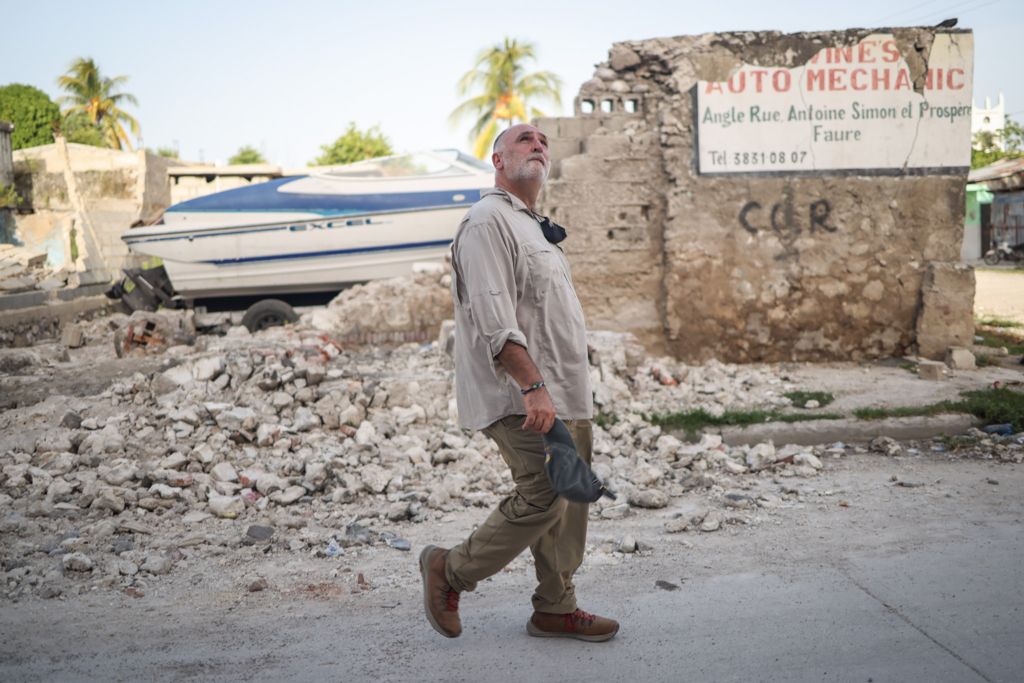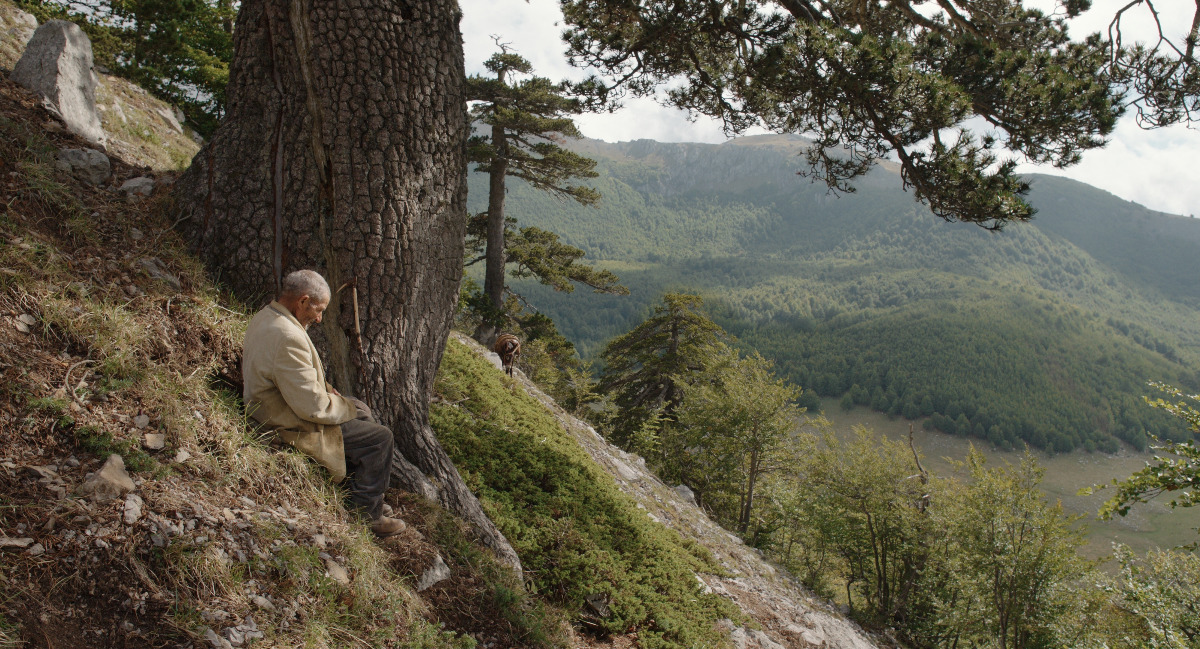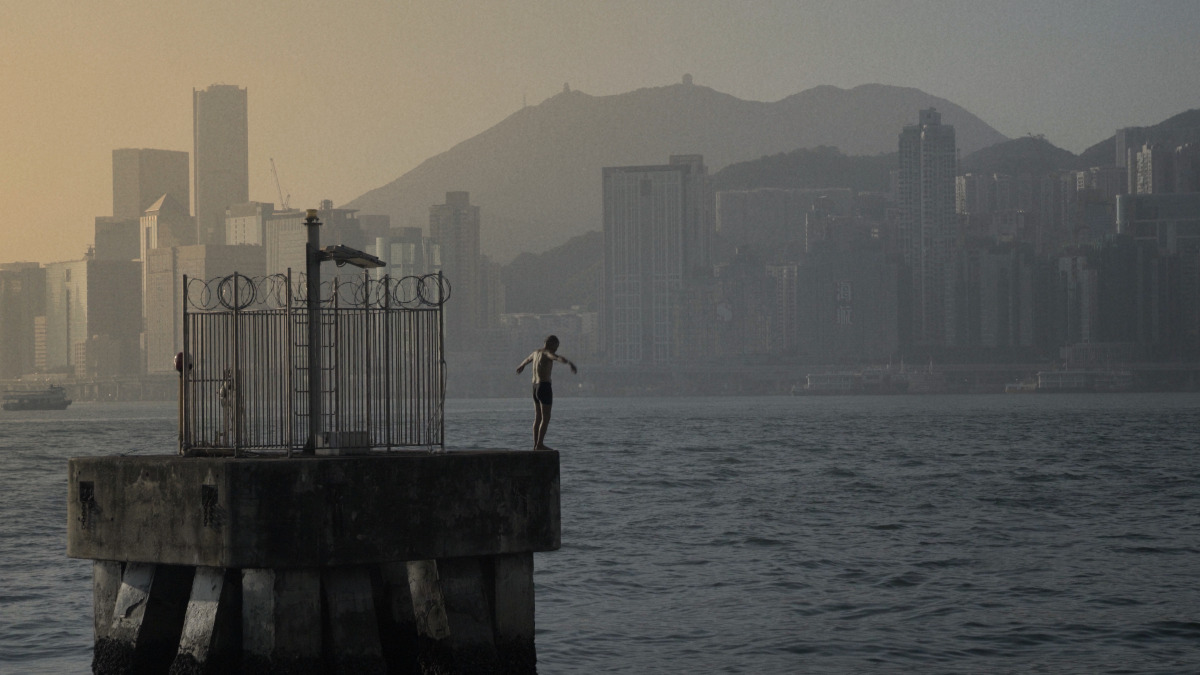We Feed People
(USA, 89 min.)
Dir. Ron Howard
Programme: Special Presentations (International Premiere)
Oscar winning filmmaker Ron Howard has almost as many non-fiction films under his belt as feature films. With an acute interest in social and environmental issues of global impact, he focuses tales where entertainment collides with more serious concerns. Over the years, Howard has crafted exceptionally well produced projects, such as Rebuilding Paradise, that are eminently accessible yet still contain enough sophistication and nuance in storytelling to set them apart.
His latest film, We Feed People, encompasses both celebrity and socially important story lines. Detailing the remarkable work of Chef José Andrés, the film traces not only the changing landscape of disaster relief, but the truly remarkable ways that the act of preparing food can more than almost any other measure allow a community to begin to rebuild in fundamental ways.
Andrés made his bones at El Bulli, the pioneering palace for molecular gastronomy. Even then he was a young, brash talent at the heart of the culinary universe. Famously fired by the mercurial Ferran Adrià (a point notably glossed over by Howard in one of the touches that may border on the hagiographic), Andrés headed across the Atlantic, first to New York and eventually to the environs of an increasingly cosmopolitan and wealthy area around Washington D.C.
Andrés soon became a kind of spokesman for Spanish cuisine, appearing on television to talk tapas, or playing host to some of the world’s most powerful people. A strong communicator with a temperament as wild, spicy and extravagant as some of his famed dishes, he soon became one of the defining chefs of his generation. This was right when the very notion of the celebrity chef was exploding thanks to Food Network’s Iron Chef and other outlets, turning the otherwise insular world of the kitchen into the branding of talent that heretofore was mostly a European fetish.
Yet even his most delectable of dishes wouldn’t be enough to earn a Nobel Peace Prize nomination—another biographical point notably skirted over in the film. Instead, for most, Andrés is seen as a kind of global saviour, bringing enormous clout to troubled regions around the world and eliciting an army of both locals and international experts to treat food insecurity during disasters with the same level of efficiency and drive as the restoration of water, power, and lines of communication.
From his earliest efforts following the Haiti Earthquake in 2010, through his work saving American lives in Puerto Rico and volcano survivors in Central America, we witness his unique blend of hubris, obsession, drive and determination to make the most of any situation. We also learn somewhat of his humility honed by failures or missteps along the way, from financial overreach to the collapsing of a transport into a culvert.
It’s perhaps no surprise he began at a restaurant named for a bulldog, for it’s in the wild, tenacious, almost canine quest to offer aid at the cost of his own comfort that the outward image has been shaped of this gregarious gentleman. Whether it be him getting his hands dirty cleaning up a rescued kitchen, or then streaming the story to millions of followers, he’s literally the face of his World Central Kitchen enterprise.
Howard’s film is most interesting when we see some cracks in Andrés’ façade. A particularly fascinating confrontation takes place with a woman who skips the line, resulting in a tirade by the chef against his underling. It’s an honest, even accurate assessment about how very easily such breeches of organization can result in total chaos, but equally it’s unsettling to watch Andrés try to rhetorically bully the person who simply was trying to get sustenance.
It’s these brief but tellingly human moments scattered among what’s otherwise a highly sympathetic if now downright glowing view of the man and his mission, which provide a glimmer of real understanding of Andrés. Even turmoil at home and the effect of his absence is laughed off by members of his family, with only slight recognition of some of its darker consequences.
While not quite spiced enough with these human moments, which break through the carefully considered image, there’s enough here to make Howard’s film more than a simple commercial for Andrés’ organization. If it were only that it would still fascinate, especially when later in the film the gaze clearly shifts from the celebrity chef to those that are driving the streets and making deliveries, and food truck operators who heed the clarion call to assist their communities.
In other words, it’s not He Feeds People, it’s We Feed People. Despite some superficial simplicity, Howard’s film is told with enough of moments of richness to elevate its taste and bring this compelling tale to the world’s stage, just as Andrés does with his food.
We Feed People screened at Hot Docs as part of the Scotiabank Big Ideas Series.












